Past projects
Discover our different past projects in details on this page.
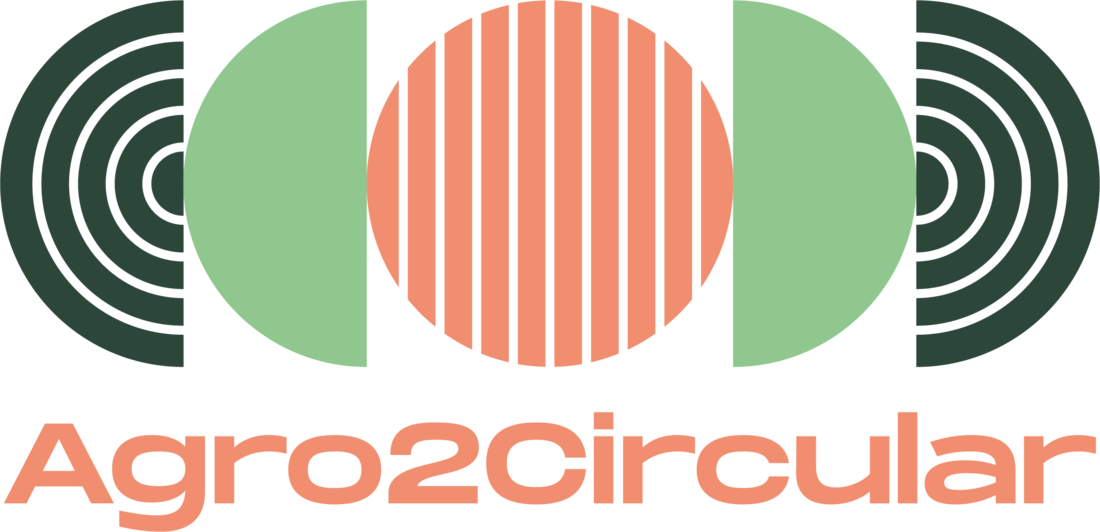
October 2021 – Aptil 2025
Country: Spain
Overall project budget: € 16,846,032.50
Budget carried out by EURADA: € 147,250.00
Budget origin: European Commission
Description of the project: Agro2Circular is focused on the implementation of the first territorial systemic solution for the upcycling of the most relevant residues in the agrifood sector (fruits & vegetables and plastic multilayers) into high added-value products, powered by a digital tool and constructed upon a systemic approach with high replicable and scalable potential.
EURADA’s role in the project is to be the task leader for networking and clustering activities that involves:
• The mobilisation of key European and international stakeholders.
• The initiation of B2B meetings, participation in external events, and organisation of project events at EU level (workshops and other dissemination events, the final event at EU level) and at local/regional/country level.
• Clustering with existing relevant European projects and initiatives on the circular economy and the circular bioeconomy.
• Clustering activities and cooperation with other circular territorial clusters funded under this topic.
EURADA is also involved in other tasks of communication, dissemination, exploitation, training and policy recommendations.
Website: Agro2Circular

November 2020 – October 2024
Country: Belgium
Overall project budget: € 4,949,950
Budget carried out by EURADA: €312,153
Budget origin: European Commission
Description of the project: ALLVIEW is an Erasmus+ project which brings together a broad range of actors from 8 different EU countries to try to close the skills gap in the Wood & Furniture sector. In the context of a constantly advancing and developing field such as W&F, it is not always easy for education providers to offer the most up-to-date curricula which develop all of the new skills which the industry desires from new graduates entering the field. For this reason ALLVIEW, in each of its partner regions, will bring together a broad spectrum of actors ranging from industry representatives through vocational education and training (VET) providers, trade unions, universities, state employment services, and others.
EURADA’s role in the project is to guide the above process of bringing together relevant actors and forming them into Regional Stakeholder Groups (RSG), with the ultimate aim of developing updated curriculums for W&F VET courses through a process of joint discussion between all those actors.
In addition to this, the project will also pursue a number of other strategies for closing the W&F skills gap, including the development of:
an AI-based Skills Assessment Framework
a Blended Learning Library
a Toolkit of Key Enabling Technologies for training, such as 3D printing and Augmented Reality
ways to promote Corporate Social Responsibility
enhanced Dual Learning and teacher/student mobility actions
Join the Allview Platform that connects individuals, training providers, and companies, fostering skill enhancement, job opportunities, and industry growth.
Website: Allview | Alliance of Centres of Vocational Excellence
Social Media: Allview Erasmus+ Vocational Excellence

May 2013 – April 2016
Country: Belgium
Overall project budget: 999,806 €
Budget carried out by EURADA: 104,400 €
Budget origin: European Commission | DG RTD
Description of the project: Building a European Network of Incubators for Social Innovation (BENISI)
BENISI created a Europe-wide network of networks of incubators for social innovation to accelerate the growth of over 300 enterprises based on social innovation. The project partners of BENISI over assisted 300 social innovators across Europe to scale up their ideas. The majority of enterprises supported in the framework of BENISI were micro-sized ones as the median size of team was three FTE and median annual revenue was 86,000 Euros. The ‘double’ positive change for 45 percent of all the enterprises based on social innovation, meant an increase in FTE and revenue. 67 percent of the social enterprises supported by BENISI (203) experienced a growth in revenue as a result of the project; 25 percent of the social innovators (75) participating in the programme scaled internationally. The three top sectors in which social enterprises flourished were health and well-being; education and training; and public participation.
EURADA carried out following tasks:
Provision of research about best-practices and policies of Regional Development Agencies and other relevant regional and local public entities fostering: - development of social enterprises, - support of social entrepreneurs, - strengthening of regional and local ecosystem with regards to the social sector.
Provision of advice to project partners about the project approach to scaling support service portfolios related to: intake, guidance on scaling approach, matching social innovation with scaling resources, active support of social innovations.
Support for social enterprises and social entrepreneurs involved in BENISI to network at European level with regards to opportunities of both expanding and internationalising.
Communication about the project progress and dissemination about the project results at European level.
Consortium members: I-Propeller NV; Impact Hub GmbH; DIESIS Coop; Impact Hub Vienna GmbH; Hub Kings Cross Limited; Hub Stockholm AB; Ropot Development SRL; Impact Hub Amsterdam BV; Hub SRL; Fondazione Cassa di Risparmio delle Provincie Lombarde; Pole Europeen des Fondations de l’Economie Sociale AISBL.
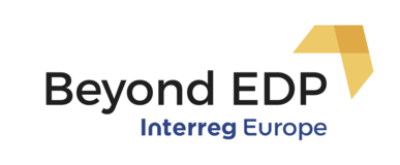
1st April 2016 - 31st March 2021
Country: Belgium
Overall project budget: 1,735,398 €
Budget carried out by EURADA: 144,950 €
Budget origin: Interreg Europe
Description of the project: Building a European Network of Incubators for Social Innovation (BENISI)The Beyond EDP project aimed to strengthen the entrepreneurial discovery process (EDP) in Europe, boosting the Regional Innovation smart specialisation strategy (RIS3, in short) adopted by Europe in 2014. Knowledge institutes and businesses need each other for innovation and to turn that innovation into saleable products and practical applications. SMEs can fulfil an important role here. Among SMEs are leaders, developers, early adopters, and followers. Most companies can be classed as followers, meaning that innovation is far from a priority for many entrepreneurs.
EURADA carried out following tasks:
Provision of research and advice to Beyond EDP project partners about best-practices related to the entrepreneurial discovery process (EDP) and the RIS3 EU-wide;
Support of Beyond EDP project partners to review and further develop their action plans related to strengthening the RIS3 at regional level;
- Organisation of Beyond EDP final conference with the participation of representatives of the European institutions, RDAs, IAs, enterprises and academia;
- Communication about the project progress and dissemination about the project results at European level.
Consortium members: DEV'UP; Universities and Higher Education: Foundation of Castilla y León; Regional Development Agency Centru (RDA Centru); FUNDECYT-PCTEX; Lodzkie Region; North France Innovation & Development; Northern Netherlands Provinces Alliance; Region Östergötland; Otto-von-Guericke-University Magdeburg; Umbria Region; Regional Council Bourgogne-Franche-Comté.
Website: https://www.interregeurope.eu/beyondedp/
Twitter: https://twitter.com/Beyond_EDP

July 2020 – July 2023
Country: Belgium
Overall project budget: €8,566,745
Budget carried out by EURADA: €170,000 (1.98%)
Budget origin: European Commission | DG CONNECT
Description of the project:
DIH-World concentrates on the acceleration of digital technologies’ adoption by European SMEs, regardless of their activity sector. This goal is reached through the strengthening of regional DIHs across Europe with a special focus on regions that lack representation. Through the provision of methodologies, technologies, tools, training, and others to DIHs, DIH-World ensures that enterprises will have the possibility of building sustainable competitive advantages and reaching global markets. The final aim is to accelerate the matureness of DIHs and the development of their collaboration capabilities, hence contributing to their survival.
Type of services provided:
Providing DIHs, access to harmonised tools, well-proven technologies, effective methodologies, sound knowledge, smart investment sources, rich training assets and overall a vibrant innovation environment.
- Creation of the DIH-World platform, that will provide full coverage of the services needed by the DIHs and the SMEs willing to identify the right DIH for them;
- Creation of the DIH-Academy that will provide the tools to train DIHs and bring them to the next level;
- Open calls for experiments, that will provide sufficient technical support to SMEs and midcaps;
- A broad geographical coverage, with more than 26 countries to be covered in Europe including specific activities to involve regional and national actors in the DIH network.
Consortium members:
Consultores De Automatización Y Robótica, S.A (CARSA). The consortium members are: Intellera consulting; IMP’rove – European Innovation Management Academy EWIV; Asociación de Empresas Tecnológicas INNOVALIA; Association Europeenne des Agences de Developpement; CBT Communication & Multimedia, S.L.
Webpage: https://dihworld.eu/
Twitter: https://twitter.com/DihWorld
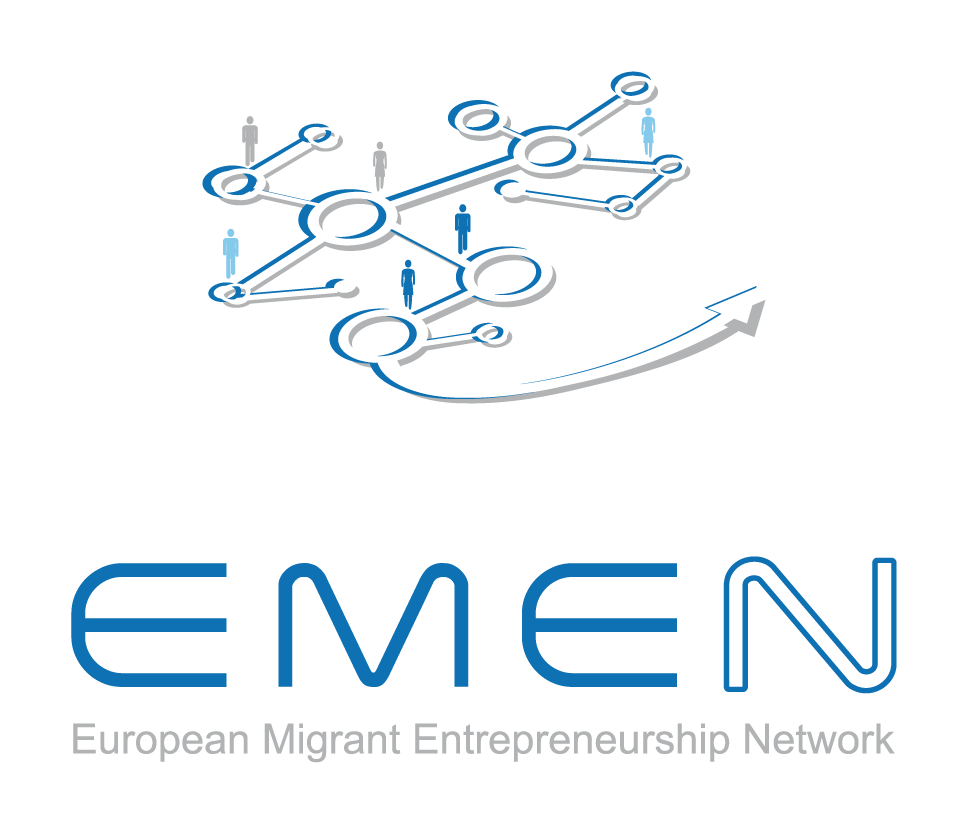
September 2019 – September 2022
Country: Belgium
Overall project budget: 373,242 €
Budget carried out by EURADA: 6,148 €
Budget origin: European Commission | EASME
Description of the project: European Migrant Entrepreneurship Network (EMEN)
The project focused on sharing approaches and lessons learnt between public administrations, business development support and financial organisations, social enterprises, non-profit organisations, educational institutions and other public and private organisations supporting migrant entrepreneurship at all levels: cities, regions and countries. These practices, together with the Good Practices in Promoting and Supporting Migrant Entrepreneurship benchmarking tool (2016) served as basis to develop entrepreneurship support schemes for migrants. The project aimed to create, share and promote support schemes not only for individual migrant entrepreneurs but also for social and inclusive enterprises benefitting migrants.
EURADA carries out following tasks:
Provision of research and advice on support schemes for migrant entrepreneurs and enterprises benefitting migrants collected from RDAs and IAs and analysed;
Communication about the project progress and dissemination about the project results at European level.
Consortium members: AEIDL; ALDA; DIESIS; THUAS-FINE; UNITEE; Eurochambres; ETUC; REVES; CECOP-CICOPA; KMOP.
Webpage: https://www.emen-project.eu/
Twitter: https://twitter.com/search?src=typd&q=%23migrent
Eurada contact person: tessa.anne(at)eurada.org

September 2020 – March 2024 (6 months extension due to COVID)
Country: Belgium
Overall project budget: €2,99,523.13
Budget carried out by EURADA: €117,500.00
Budget origin: European Commission | DG RTD
Description of the project:
This project is framed under the topic "SSH aspects of the Clean-Energy Transition" and it tries to interpret the "Challengues facing the carbon intensive regions" within a multi-contextual framework:
1) the de-carbonisation policies;
2) the ongoing processes of de-territorialisation;
3) the territorial dimension of clean energy transition.
The overall goal is developing a theoretically-based and empirically-grounded understanding of cross-cutting issues related these SSH aspects of the clean energy transition in European coal and carbon-intensive regions, so as to formulate a set of recommendations able to tackle these issues.
Type of services provided:
- Create a Board of Regional Stakeholders, engaging more than 50 experts from regions that are experiencing decarbonisation processes, that have a carbon-intensive economy, or that have some link with the topics of the project;
- Contact regions from outside Europe that are facing similar challenges to invite them to the key meetings of the projects and keep them informed about the development of it in order to learn from their experiences, to share knowledge and best practices.
Consortium members:
Universidade Da Coruna; Agenzia Nazionale per le Nuevo Tecnologie; Conoscenza e Innovazione Societa Aresponsabilita Limitata Semplificata; Leibniz- Institut Fuer Wirtschaftsforschung Halle E.V.; Liebniz- Institut For Okologische Raumentwicklung EV; Zentrum Fuer Soziale Innovation; Norges Teknisk-Naturvitenskapelige Universitet NTNU; The Eruopean Association of Development Agencies (EURADA); Instytut Gospodarki Surowcami Mineralnymi I Energia Pan; Universitatea Alexandru Ioan Cuza Din Iasi; Sociedade Portuguesa De Inovacao Consultadoria Empresarial E Fomento Da Inovacao Sa; Women Engage For A Common Future France (Wecf); Centrum Spolocenskych A Psychologickych Vied Slovenskej Akademie Vied; Cardiff University.
Webpage: https://entrancesproject.eu/
Twitter: https://twitter.com/H2020Entrances
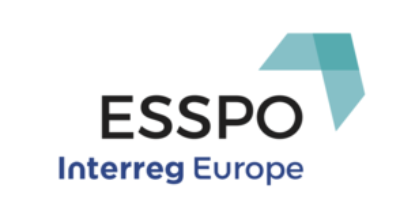
1st April 2016 – 31st March 2021
Country: Belgium
Overall project budget: 1,897,328 €
Budget carried out by EURADA: 123,492 €
Budget origin: Interreg Europe programme
Description of the project: Efficient support services for SMEs (ESSPO)
The aim of ESSPO project is to address the issue of efficiency of SME support policies and develop comprehensive support portfolios designed as policy mixes, which would identify and establish synergies between different services and smartly target relevant segments of SME population.
The project takes a long-term approach to contribute to the creation of effective and efficient SME support service portfolios, which are capable to impact the regional economies via increasing SME’s competitiveness, especially focusing on their growth on national and international markets as well as on their improved engagement in innovation processes. The project seeks to develop changes in the regional territories of the project partners listed and includes making changes to regional development instruments such as voucher schemes and incubation support. Changes to soft support of regional partners are also sought in the areas of promotion of services for SMEs and supporting business support organisations.
EURADA carries out following tasks:
Provision of research and advice to ESSPO project partners about best-practices related to SMEs support service portfolios with focus on national and international markets and innovation processes;
Establish a self-evaluation questionnaire to identify the main gaps in SME support policies for each partner;
Provide a methodology for peer learning, provide training with a workshop and contribute to the implementation of the peer learning methodology;
Support of ESSPO project partners to review and further develop their action plans related to SMEs support service portfolios at regional level;
Organisation of ESSPO final conference with the participation of representatives of the European institutions, RDAs, IAs, enterprises and academia;
- Communication about the project progress and dissemination about the project results at European level.
Consortium members: Poznan Science and Technology Park; Dev’Up; ADE – Castilla y Leon Region; Municipality of Gabrovo; ARC Fund; Tartu Science Park Foundation; Tecnalia
Webpage: https://www.interregeurope.eu/esspo/
Facebook: https://www.facebook.com/ESSPOproject/
Eurada contact person: esteban.pelayo(at)eurada.org
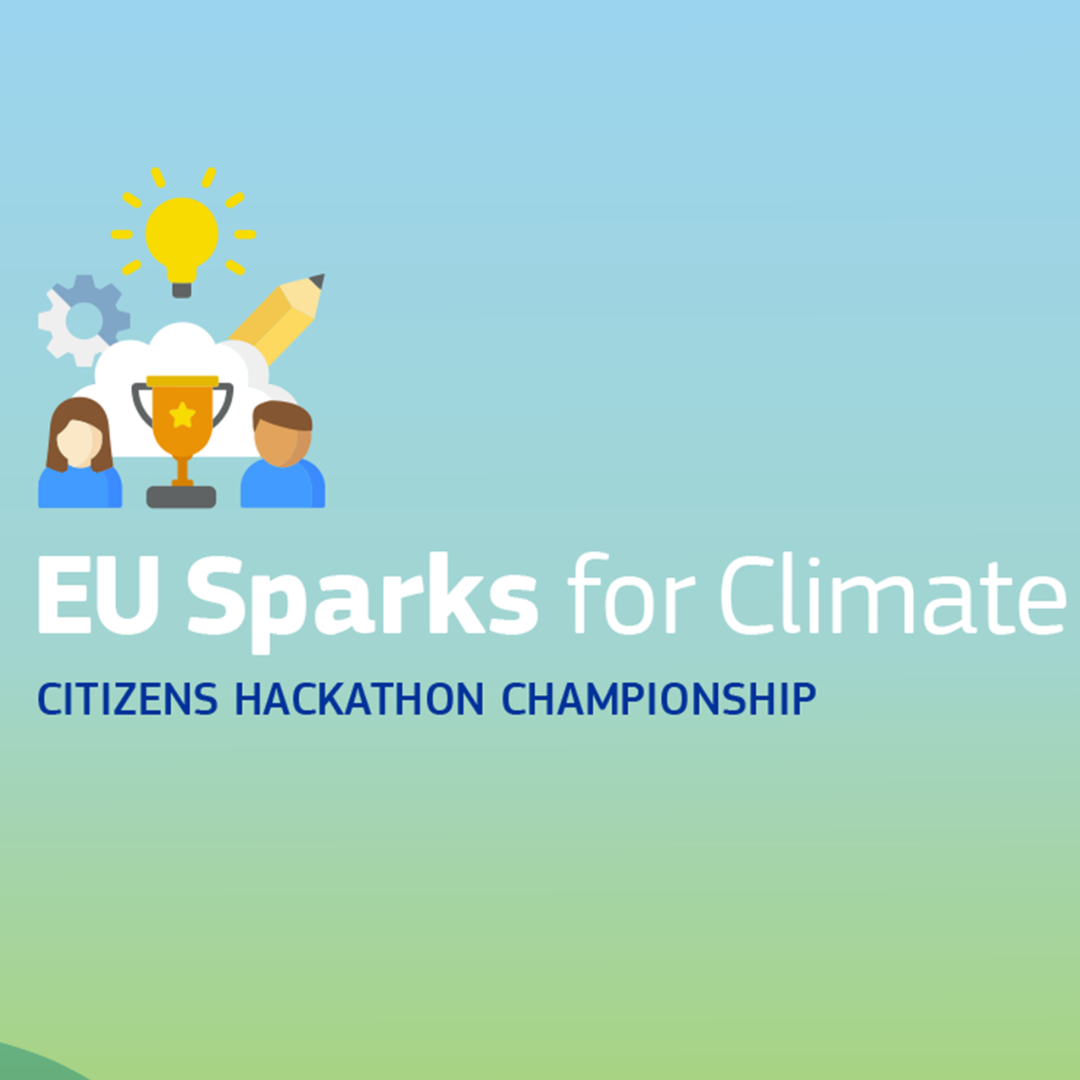
January 2024 – December 2024
Country: Belgium
Overall project budget: € 948.068,77
Budget carried out by EURADA: € 70.000
Budget origin: European Commission | DG RTD
Description of the project:
The new initiative European Citizens’ Hackathon Championship aims to enhance climate change solutions that prioritise citizens' needs and are collaboratively developed with various stakeholders including industry, cities, regions, public administrations, and research communities.
With a total budget of €948,068.77 and a duration that will extend throughout the year 2024, it will actively support the EU Mission on Climate Neutral and Smart Cities as well as the EU Mission on Adaptation to Climate Change, empowering citizens to play a pivotal role in shaping the future while mitigating and adapting to climate change challenges.
The European Citizens’ Hackathon Championship aligns with EU missions by empowering citizens to co-create both technological and social solutions that address climate objectives and meet societal needs and endeavours to harness knowledge through citizen engagement, driving innovation forward.
The championship unfolds in two phases:
Initially, a series of local hackathons will be organized across at least 22 countries, comprising EU member states and associated states. Citizen-researcher teams will vie for the most promising climate change solutions. Winning teams will then undergo specialised training and mentorship to refine their ideas for the EU final competition.
In the second phase, victorious teams from local hackathons will converge for a final European hackathon to determine three European Champions. These champions will receive further support to promote their solutions for societal and market adoption through a tailored support program.
The initiative was set to commence with a call for participation in February 2024, followed by local hackathons in EU member states and associated countries in spring 2024. The European final, where the three champions will be crowned, is scheduled for autumn 2024.
The Championship will primarily be executed online, facilitated by a consortium selected through a competitive tendering process.
Webpage: EU Sparks for Climate
LinkedIn: EU Sparks for Climate: About | LinkedIn
Twitter: EU Sparks for Climate (@EUSparks_eu) / X
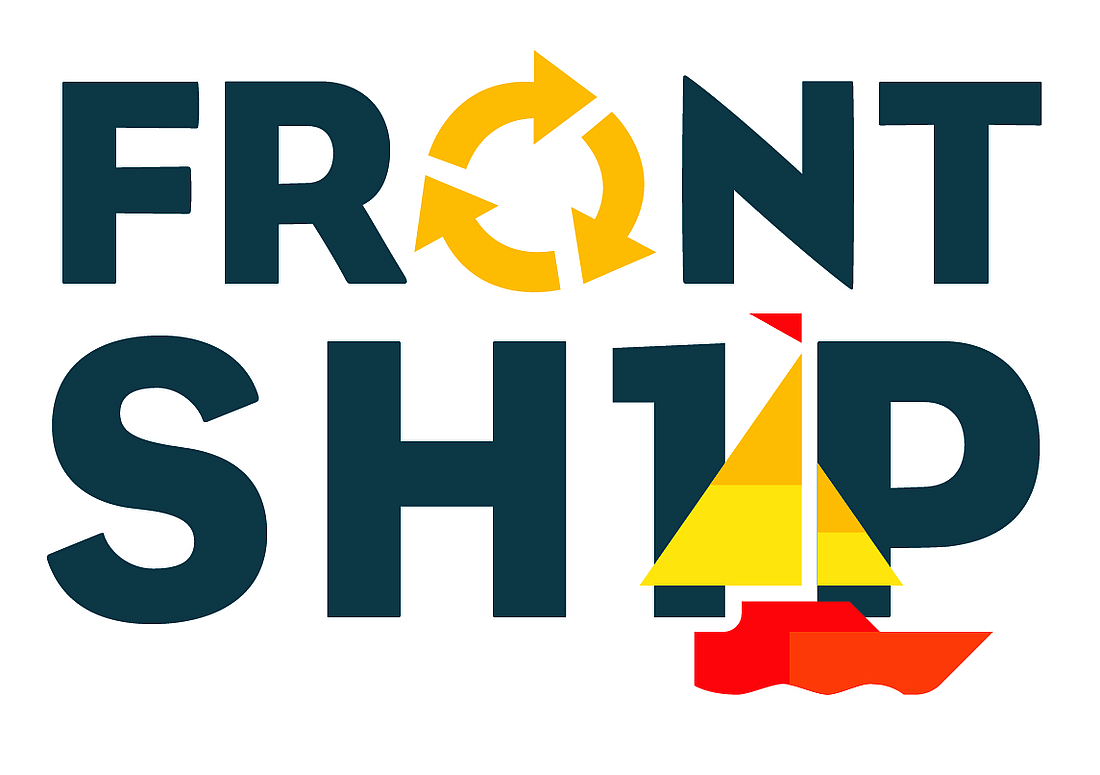
November 2021 – November 2025
Country: Poland
Overall project budget: € 18.959.452,50
Budget carried out by EURADA: € 350.093,75
Budget origin: European Commission | REA
Description of the project:
FRONTSH1P is centred in the Polish region of Łódzkie and contributes to further the green and just transition of the region away from its current linear model of economic development, towards the region’s decarbonisation and territorial regeneration. It does so by demonstrating four circular systemic solutions (CSSs). Each CSS will be implemented in the region and targets an economic sector that is itself aiming towards decarbonisation: Wood Packaging, Food & Feed, Water & Nutrients, and Plastic & Rubber Waste. Another major goal in the demonstration of the CSSs is their replicability. A feat that will be proven during the project by their implementation in four other European regions: Campania (Italy), Stereá Elláda (Greece), Região do Norte (Portugal), and Friesland (the Netherlands). FRONTSH1P will apply a circular governance model and create circular regional clusters, which will involve a wide range of local, regional, and national stakeholders, both from the public and private sphere.
Webpage: FRONTSH1P
LinkedIn: FRONTSH1P | LinkedIn

June 20103 – May 2015
Country: Belgium
Overall project budget: 999,364 €
Budget carried out by EURADA: 37,053 €
Budget origin: European Commission | DG RTD
Description of the project: Professional promotion of eco-innovation knowledge through an integrated expertise platform for policy makers, SMEs and the public in view of boosting the Green Economy (GreenXpo)
GreenXpo pursued a faster and wider uptake and exploitation of technological and nontechnological eco-innovations as well as best-practices related to eco-innovation. Concretely, GreenXpo created a single online portal gathering eco-innovation knowledge from different areas such as technologies, services, business models, processes, and policies. This portal presents eco-innovation knowledge in a user-centred, intuitive and easy-to navigate manner that focuses on the functionality of each piece of knowledge.
EURADA carried out following tasks:
Provision of research and advice to project partners for the preparation of the project methodology to gather knowledge of diverse research areas: e.g. technologies, services, business models, processes, and policies.
- Communication about the project progress and dissemination about the project results at European level.
Consortium members: Forschungszentrum Jülich GmbH; Greenovate! Europe; youris.com; Collaborating Centre on Sustainable Consumption and Production; Technopolis Group; Lahti Region Development LADEC Ltd; SP Technical Research Institute; ICLEI European Secretariat; National Cheng Kung University – NCKU.
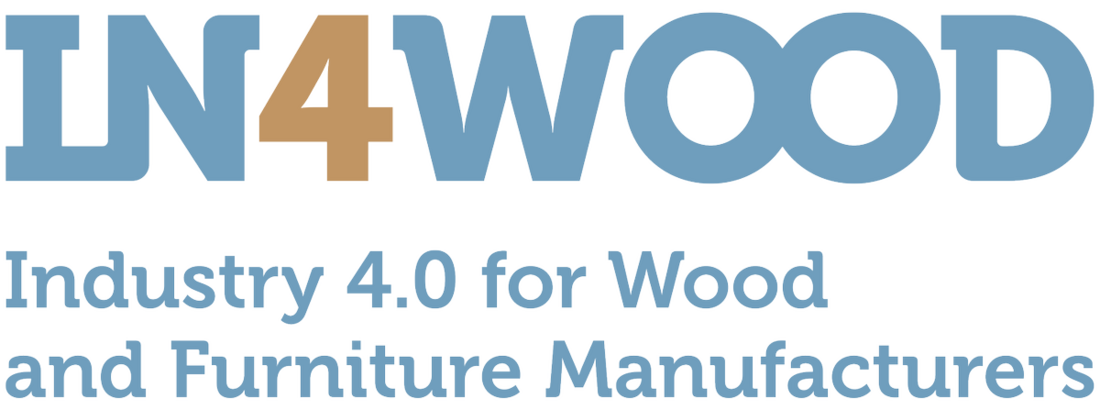
November 2016 – October 2019
Country: Belgium
Overall project budget: 1,171,593 €
Budget carried out by EURADA: 57,436 €
Budget origin: European Commission | EACEA
Description of the project: Industry 4.0 for wood and furniture manufacturers (IN4WOOD)
The furniture and wood sector identified a shortage of professionals with high qualification in ICTs and other emerging technologies. Specific Skill that stand out as critical for managers in the furniture sector are ICTs skills which are crucial to operate in a modern business environment. They may require attention in terms of additional training and adjustments in the official curricula. ICT skills are useful for mass production and customized products e.g.: ICT support and management systems-E-commerce (marketing, CMRs tools). The main outputs of IN4WOOD were: 1) A deep analysis of the furniture sector regarding the lack of knowledge and skills in Industry 4.0; 2) A complete and agile training path for wood and furniture practitioners;
EURADA carried out following tasks:
Provision of research and advice to IN4WOOD project partners about best-practices related to Industry 4.0 with focus on managerial and entrepreneurial needs of SMEs;
Organisation of IN4WOOD final conference “The next generation of education and training in the wood and furniture sectors and why it matters for development agencies” with the participation of European institutions, RDAs, IAs, academia and enterprises of the wood & furniture sector; food sector; luxury sector;
Communication about the project progress and dissemination about the project results at European level.
Consortium members: Centro Tecnológico del Mueble y la Madera de la Región de Murcia; INDRA Sistemas, S.A.; Universidad Politécnica de Cartagena; British Furniture Manufacturers; Ionology; Open Awards Limited; Centro Sperimentale del Mobile e dell’arredamento; Scuola Superiore di Studi Universitari e di Perfezionamento Sant'anna; Internationaler Verein für Technische Holzfragen; Karlsruher Institut Fuer Technologie; Murcia STE; PILDOREA
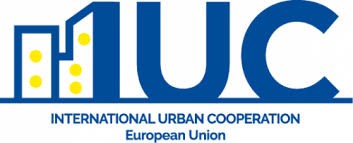
November 2016 – November 2019
Country: Belgium
Overall project budget: 3,100,000 €
Budget carried out by EURADA: 33,500 €
Budget origin: European Commission | DG DEVCO Partnership Instrument
Description of the project: International Urban Cooperation: Sustainable and Innovative Cities and Regions - Regional Action Latin America (IUC-LA)
IUC-LA strengthened the city-to-city cooperation related to sustainable urban development; local and regional climate change action and EU and Latin America region-to-region cooperation on innovation for local and regional development. IUC-LAC promoted pilot projects and/or cooperation agreements between EU and LA. To this end, pairings have been organised and selected regions have been provided with technical support related to RIS3 development / implementation, generating concrete pilot projects and/or cooperation agreements. IUC-LA also included visits where Latin American regions visited designated EU pairing regions, and EU regions visit designated LA pairing regions.
EURADA carried out following tasks:
Coordination of the promotion and selection process of EU regions;
Coordination of peer learning and in-depth understanding of regional needs and practical RIS3 benefits, identification of new business opportunities, and establishment of pilot projects and/or cooperation agreements EU-LA.
Support of the promotion of IUC-LA project in the forums and conferences.
Consortium members: Deutsche Gesellschaft für Internationale Zusammenarbeit (GIZ) GmbH; Ramboll Danmark A/S; Información y Desarrollo SL (INFYDE); Confederação Nacional de Municípios (CNM)

January 2021 – January 2024
Country: Belgium
Overall project budget: €700,000
Budget carried out by EURADA: €21,000
Budget origin: European Commission | Tender
Description of the project:
The action represents a second phase of the International Urban Cooperation programme (IUC) with a view to taking forward, and developing, the first phase, 2016-2020, as part of a long-term strategy to foster urban diplomacy as an important vehicle of the EU's external relations. Reflecting the interest outside the EU in the EU’s decentralised approach to promoting competitiveness through innovation in a way that takes into account the particular specificities and potential of various territories and therefore the increasing role of inter-regional cooperation. The countries concerned by the action are the following: Argentina, Brazil, Canada, Chile, Colombia, Mexico, Peru, the United States, China, India, Indonesia, Japan, Malaysia, Republic of Korea, Thailand, Vietnam, Australia and New Zealand.
Type of services provided:
- Support to peer region to region cooperation in the field of innovation (between EU and, on the one hand, selected regions in Brazil, Mexico, Argentina, Chile, Peru and Colombia and, on the other, with selected regions in China). The cooperation of regions will be one-to-one and in thematic clusters.
- Promotion of the profiles of cooperation from regions outside the EU to European Regions to establish pairing on mutual interest.
Consortium members:
ACCIONA Ingeniería Civil Especializada Obra Civil e Industrial; EUROCITIES; Información y Desarrollo S.L. (INFYDE); Association Europeenne des Agences de Développement (EURADA).
Website: https://www.iurc.eu/
Twitter: https://twitter.com/IURC_Programme
LinkedIn: https://www.linkedin.com/company/iurc/
YouTube:https://www.youtube.com
Instagram: https://www.instagram.com/iurc_programme/
Contact person within EURADA: irae.almora(at)eurada.org
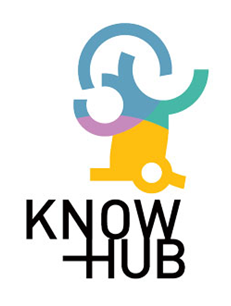
December 2011 – December 2014
Country: Belgium
Overall project budget: 2,132,078 €
Budget carried out by EURADA: 163,862 €
Budget origin: Interreg Joint Technical Secretariat | Interreg IVC 1341R4
Description of the project: Enhancing the regional competences in strategic management of innovation policies (Know-Hub)
Know-Hub contributed to bridge the gap of the shortage of knowledge, skills and experiences of European regions in designing and implementing smart and effective strategies for innovation. Practitioners from 10 EU regions collaborated in reviewing their policies and practices to identify critical issues related to innovation and share good practices to address these. The project partners learned together how to apply the know-how and experience identified in the peer review process and shared these learning outcomes with the aid of modern knowledge management tools. The project collaborated with the Smart Specialisation Platform (S3) in their work of revision and improvement the project partners’ Smart Specialisation Strategies for Research and Innovation (RIS3) and built on lessons drawn from the implementation of previous Regional Innovation Strategy (RIS and RITTS) initiatives.
EURADA carried out following tasks:
Provision of research and advice for the Know-Hub handbook on “Challenges for smart regional specialisation as a way to escape from uniformity of innovation policy”;
Provision of research and advice to project partners for the Know-Hub handbook on “Effective policy mix and instruments for Smart Specialisation”;
Organisation of the Know-Hub final conference (18/20.11.2014) “Paving the Way to Regional Smart Growth” with 150+ participants of EU institutions, RDAs, regional and local authorities, SMEs and academia;
Coordination of two cycles of regional workshops about: - smart specialisation strategies; - effective instruments of innovation policies;
Communication about the project progress and dissemination about the project results at European level.
Consortium members: Foundation Université Adam Mickiewicz; INNOVA Eszak-Alfold Regional Innovation Agency; Basque Government - Industry, Innovation Commerce and Tourism Dept.; North France Innovation Development; Regional Agency for Innovation and Internationalization of SMEs; Lower Austrian Government, Dept. Economic Affairs, Tourism, Technology; Weser-Ems – Association of Counties and Cities in the Weser-Ems, represented by the District Ammerland; Banská Bystrica Self-governing Region; Castilla y León Regional Government – Universities and Higher Education Foundation of Castilla y León; Applied Research and Communications Fund; Municipality of Gabrovo; Tecnalia.
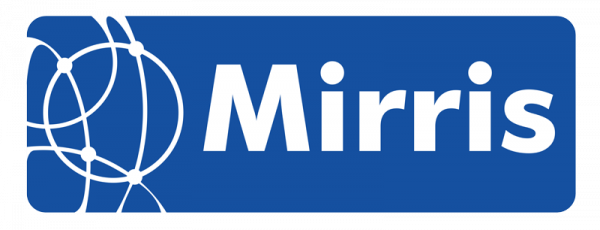
July 2013 – June 2016
Country: Belgium
Overall project budget: 1,496,215 €
Budget carried out by EURADA: 174,272 €
Budget origin: European Commission | DG RTD
Description of the project: Mobilising Institutional Reforms in Research and Innovation Systems (MIRRIS)
MIRRIS targeted a better exploitation of European R&I programmes and a wider participation in the European Research Area (ERA) of new EU Member States (EU-MS) by setting up a process of analysis, dialogue, mutual learning among key stakeholders, namely research, R&I actors. MIRRIS carried out three rounds of policy dialogues per country, involving: decision-makers, implementation institutions and operational structures. The I round identified gaps affecting participation in EU research programmes in the 13 target countries. The II round provided a platform to select and prioritise a set of intervention actions specific to each country. The III round elaborated an agreement on an action plan and consensus-building around a roadmap to be implemented. As result of the policy dialogues the 13 new EU-MS were provided with recommendations, an action plan with a roadmap with relevant pilot activities. Overall, MIRRIS initiated 40 policy dialogues in the new EU-MSs, along with 13 coaching exercises. Over 800 stakeholders and 85 national ministries were involved in the dialogues helping identify priorities and barriers towards enhanced participation in ERA.
EURADA carried out following tasks:
Coordination of the overall policy dialogues: i.e. around 40 policy dialogues in 13 EU-MS reaching out to 800+ stakeholders and 85+ national ministries;
Provision of research and advice to project partners for the preparation of the MIRRIS Policy Dialogue Structure as well as provision of analysis and advice about the common challenges of the new EU-MS related to: - Participation to FP7/H2020, - Research excellence promotion, - Mobility of researchers, - Innovation drive and market-oriented research, - Brain drain, - Skilled human capacity, - Involvement of private sector in ERA, - ESIF H2020 synergy, - Evaluation system..
Consortium members: META Group SRL; Coventry University; European BIC Network; EFMD - The Management Development Network; European Association for the Transfer of Technologies, Innovation and Industrial Information; International Network for Small and Medium Sized Enterprises-INSME; Aalborg University; Proton Europe; Polish Agency for Enterprise Development (PARP); Centre for Social Innovation (ZSI); APRE - Agenzia per la Promozione della Ricerca Europea.

December 2017 – December 2019
Country: Belgium
Overall project budget: 549,750 €
Budget carried out by EURADA: 177,875 €
Budget origin: European Commission | DG RTD
Description of the project: Optimizing Support for Innovating SMEs (OaSIS)
The aim of the OaSIS project was to strengthen Europe’s economic growth and innovative potential through the optimization of innovation support schemes, provided by the support agencies and organizations. The optimization was achieved via segmentation of innovating SMEs, identification of highest-potential groups of enterprises and targeting various sectors with the support mechanisms best suited to their needs, potential, and ambition. This leaded to a better understanding of innovation opportunities and activities as well as their outcomes, achieving higher economical and societal impact from innovation support schemes and to the improved effectiveness and efficiency of the operation of innovation support agencies.
EURADA carries out following tasks:
Provision of research about existing methodologies of the segmentation of innovating SMEs; and description of the portfolios of the innovation support measures used by the support agencies and assessment of their efficiency in addressing the needs of important regional segments of innovating SMEs, analysis of the biases towards certain innovating SMEs present in the currently used support measures and opportunities to overcome them;
Coordination a group of Regional Development Agencies (RDAs), engaged as project l third parties to bring practical applications to the project from Spain, Germany, Turkey, Poland, Italy, Bulgaria and Croatia;
Communication about the project progress and dissemination about the project results at European level. Organisation the final conference.
Consortium members: Politechnika Krakowska; LINKNOVATE Science SL. EURADA
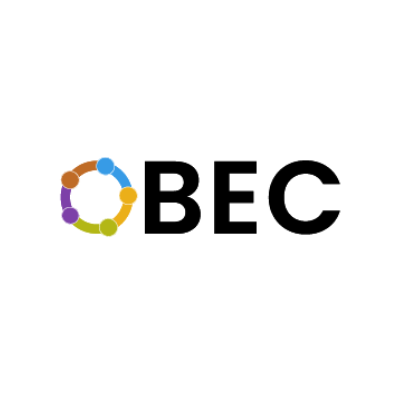
October 2020 – September 2022
Country: Belgium
Overall project budget: €234,490
Budget carried out by EURADA: €41,976 (17,9%)
Budget origin: European Commission | EACEA
Description of the project:
OBEC targets new migrant men and women, exchange students, and persons with informal and non-formal learning experiences who encounter issues to validate and obtain recognition for their skills, competences, and qualifications when moving across national borders. The main goal is to contribute to the promotion of social and professional inclusion by resorting to Blockchain (BC) as an innovative technology which has the capacity of revolutionizing the educational environment through the creation of a transparent, reliable, and immutable system for issuing and validating learning credentials. This project seeks to: - Develop an in-depth research of the status and knowledge gaps of BC in the education context; - Introduce the potential of BC for the development of a trusted and transparent system of educational certificates in Europe, which could give Europe a global innovation edge in this arena; - Explore and apply an existing technology to the educational field in order to foster innovative tools for the creation, recognition, validation, and sharing of professional skills and academic qualifications across nations; - Promote social inclusion, gender equality, and boost employability by investing in an innovative educational system which will encourage the integration of all into labour markets.
Type of services provided:
EURADA coordinates the quality assessment activities of OBEC by distributing questionnaires to meeting attendees after meetings, multiplier events, training activities, and the testing phase. EURADA also leads the quality committee.
EURADA organises the project’s final meeting in Brussels in M24 (Sept 2022). During this meeting, all project activities and their outcomes will be assessed by the whole consortium, as well as the project management and dissemination activities.
EURADA is the Promotion and Dissemination Lead and responsible for the project dissemination activities. EURADA will develop the communication strategy to monitor progress on the dissemination activities with the support of all partners. EURADA will be responsible for searching the best opportunities and means to promote the project, coordinating and monitoring all partners’ dissemination activities. All partners will be responsible for dissemination activities and will manage dissemination all over the partner countries.
5 multipliers events are foreseen, and they will take place in the 4 countries represented in the project: Belgium, Croatia, Italy and Sweden. A special dissemination digital kit will be prepared to support these events, the project webpage will be also key for the project dissemination. EURADA will also lead the promotion and dissemination committee of the project.
Consortium members:
SwIdeas; Regional Develpment Agency of Sisak-Moslavina County (SI-MO-RA); Lai-Momo Societa' Cooperativa Sociale; Universita' degli Studi di Urbino Carlo Bo.
Website: https://www.projects/erasmus/obec
Eurada contact person: marta.serrano(at)eurada.org

June 2022 – May 2024
Country: Belgium
Overall project budget: € 1,953,526.25
Budget carried out by EURADA: € 87,812.50
Budget origin: European Commission
Description of the project:
PROTECT is a Horizon Europe-funded project of 24 months that started on 1 June 2022. PROTECT aims at levering innovation procurement to unlock the climate service (CS) market’s potential to support urgent climate adaptation and mitigation.
The project will allow public and private organisations to build up and integrate their knowledge and skills about climate change, environmental observation (EO) and innovation procurement, notably enabling public authorities to shift to a proactive governance model, using innovative public procurement approaches to increase value and climate impact for money.
While European cities and regions’ demand for climate services is highly fragmented and prevents the formulation of realistic needs to the climate services’ market, both sides are not sufficiently informed about the potential of data collected through Environmental Observation modalities to help advance the development of climate services. Through Pre-Commercial Procurement, cities and regions can steer the development of climate services based on environmental observation towards their needs, thereby achieving their climate adaptation and mitigation objectives.
PROTECT prepares the ground for and facilitates the undertaking of joint, cross-border, coordinated Pre-Commercial Procurement(s) in the area of climate change adaptation and mitigation to enable the up-scaling and wide use of climate services using Environmental Observation to respond to common needs in this area.
PROTECT’s actions include:
Market gap analysis of climate services’ needs
Building and engaging a community of climate services’ buyers
Bridging the demand and supply gap for climate services and preparing the Pre-Commercial Procurement
PROTECT will look at public buyers’ most pressing needs in 5 application domains where climate services could bring significant impacts in mitigating and adapting to the risks and effects of climate change.
Sustainable urban communities
Energy and utilities
Civil security and protection
Agriculture, forestry and other land use
Marine and coastal environments
This project is framed under the topic "SSH aspects of the Clean-Energy Transition" and it tries to interpret the "Challengues facing the carbon intensive regions" within a multi-contextual framework:
- the de-carbonisation policies;
- the ongoing processes of de-territorialisation;
- the territorial dimension of clean energy transition.
The overall goal is developing a theoretically-based and empirically-grounded understanding of cross-cutting issues related these SSH aspects of the clean energy transition in European coal and carbon-intensive regions, so as to formulate a set of recommendations able to tackle these issues.
Webpage: PROTECT
LinkedIn: EU PROTECT: About | LinkedIn
Twitter: PROTECT Project (@EU_PROTECT) / X
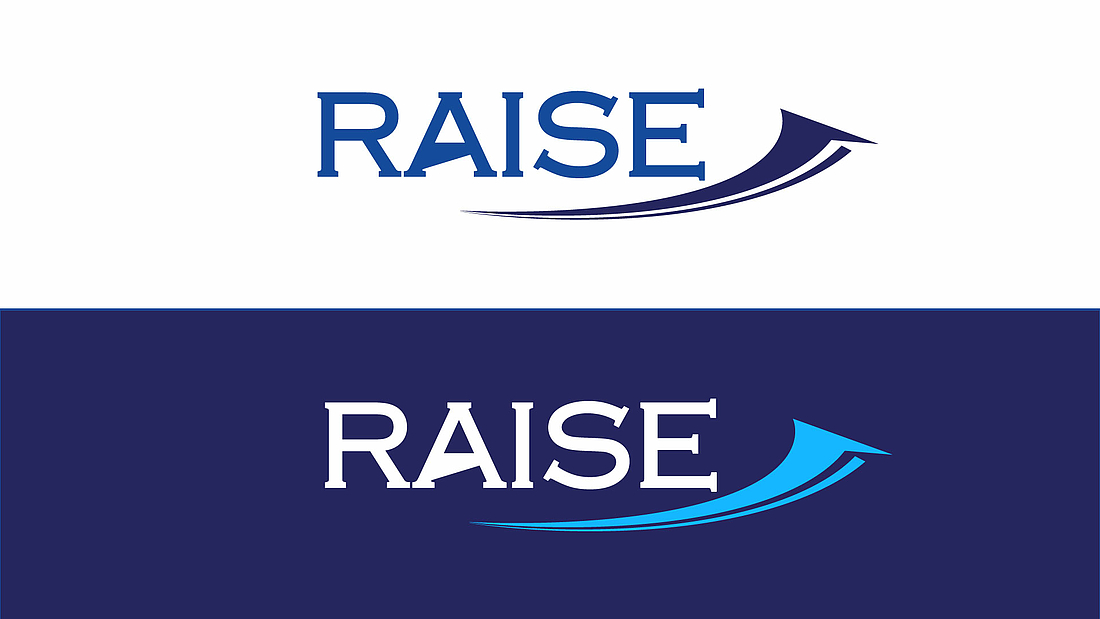
June 2022 – May 2024
Country: Belgium
Overall project budget: € 498, 625.00
Budget carried out by EURADA: € 93,125
Budget origin: European Commission | REA
Description of the project:
RAISE is a Horizon Europe-funded project of 24 months that started on 1st June 2022. Startup Europe has drastically changed the start-ups landscape in Europe over the last 4 years putting start-ups and entrepreneurship high in the EU political agenda. This initiative has had the capacity to unite start-up ecosystems across Europe, and to launch a truly convergence movement to build a “start-up-friendly Europe”, through projects and other initiatives.
RAISE will develop a long-term collaboration and action plan for the establishment of a virtual interconnected space for EU start-ups to scale up, building on established pan-European associations for the most relevant dimensions of start-up support (public incentives, research and innovation, private seed funding) and on dynamic ecosystems in Europe.
The RAISE concept is an integrated approach that builds on the synergy and complementarity of several pan-European dimensions in order to cover the full cycle of support to start-up and scaleup.
Objectives
The main goal of this proposal is to contribute to the development of a new and sustainable integrated support framework to foster start-up growth and scale-up across Europe in all its dimensions, from initial funding, to research support to public incentives and internationalisation. This will result in promoting competitive business models, unconventional products and solutions, in all over Europe, and contributing to the establishment of a true EU start-up ecosystem.
The project specifically aims to:
To link the 63 regions represented under SERN, with the200+ investors that are EBAN members, the 65 innovation and development agencies in EURADA, the 160,000 researchers worldwide via ICORSA’s member associations, and the 350 science and technology parks gathered under IASP represented by F-PCTEX and open the resulting virtual connected space to start-ups and entrepreneurs from across Europe;
To plan common actions to help start-ups scale up through privileged links to regional funding instruments, major research actors and with EU Investor communities, such as business angels;
Reach out to other regions, inclusive outside Europe, and contribute to develop start-up friendly regional policies and interconnected ecosystems;
Contribute to the overall visibility of the resulting integrated start-up support framework through a mix of targeted and high-level communication actions.
Webpage: Home - RAISE fosters startup growth and scale-up within and across Europe
LinkedIn: RAISE.EU: Company Page| LinkedIn
Twitter: Raise.EU (startup growth and scale-up) (@RaiseProjectEU) / X

October 2016 – January 2018
Country: Belgium
Overall project budget: 2.088.000 €
Budget carried out by EURADA: 102,800 €
Budget origin: European Commission | EASME
Description of the project: ReConfirm Initiative: Regional Co-Operation Networks for Industrial Modernisation
ReConfirm is an EU funded project designed specifically to assist European regions and industrial stakeholders to implement their action plan under the Smart Specialisation Platform for Industrial Modernisation (S3P). ReConfirm assists partnerships composed by regions with the same priorities in their smart specialisation strategies along the phases of the S3P-Industry towards the signature of investment protocols. This requires that the project responds to real business needs and overcomes obstacles which hamper these initiatives to develop. As such the need to identify very specific and focused initiatives that point companies to market opportunities, ideas about how to respond to future challenges and access to investors and finance. Such opportunities may emerge from cooperation of business partners in unexpected places and territories. The project fostered industry led initiatives, in selected promising industrial domains, linking companies across different regions, including lagging regions.
EURADA carries out following tasks:
Provision of advice on innovative practices in the field of regional development focusing on RDAs and IAs (benchmarking, business angels, proof of concept, investment readiness, value chain models etc.);
Coordination of 30+ activities (conferences, seminars, transnational projects) aimed at strengthening regional competitiveness based on entrepreneurship, RDTI and internationalisation thanks to the experience of its members and from its contacts with its sister organisations located all over the world.
Consortium members: Ecorys; Inno; MetaGroup; SPI; EBN.

August 2019 – July 2022
Country: Belgium
Overall project budget: €1,290,802
Budget carried out by EURADA: €148,440
Budget origin: European Commission | Interreg Europe (ERDF)
Description of the project:
SCALE UP plans to improve policy instruments supporting SMEs capacity to grow in regional, national and international markets. SCALE UP contributes to the European competitiveness and acceleration of regional economic growth through improvement of policy instruments. This way, regional and local authorities can respond adequately to key obstacles that hamper SMEs on their path to growth.
The following key areas have been identified to work in the project: New business collaborative models; Improve collaborative culture between science, technology, innovation & industrial companies; Regional smart specialisation sectors in form of partnerships/networks/clusters; use & adaptation to new technologies and accessing to finance tools.
Type of services provided:
- Identification and benchmarking of best-practices about industry business scaleup policies at EU level;
- Organisation of the SCALE UP final conference with the participation of representatives of the European institutions, RDAs, IAs, SMEs and academia
- Communication about the project progress and dissemination about the project results at local, regional and European level.
Consortium members:
INFO Murcia; Regional Management Northem Hesse GmbH; Regional Development Fund on behalf the Region of Attica; Lazio INNOVA; Lubelskie Voivodeship; Nottingham city council.
Webpage: https://www.interregeurope.eu/scaleup/
Twitter: https://twitter.com/SCALEUP_project
Linkedin: https://www.linkedin.com/company/scale-up-interreg-project/
Eurada contact person: irae.almora(at)eurada.org

July 2013 – June 2016
Country: Belgium
Overall project budget: 2,749,851 €
Budget carried out by EURADA: 32,256 €
Budget origin: European Commission | DG RTD
Description of the project: SmartSpec: Smart Specialisation for Regional Innovation
The overarching goal of the project was to operationalise the concept of smart specialisation in a useful manner for actors in different regional contexts. To this end, the project consortium strengthened the analytical underpinnings of the smart specialisation concept, provided methodological guidance for practice and generating strategic intelligence for policymakers. Through an integrated, multi-dimensional and place-based approach focused on 8 Work Packages, SmartSpec developed robust practical and analytical findings to strengthen the implementation of smart specialisation strategies. With a strong emphasis on knowledge exchange and facilitated learning, SmartSpec delivered useful results to inform practitioners and policymakers in the development and assessment of smart specialisation strategies, whilst extending the state of the art.
EURADA carried out following tasks:
Provision of advice to project partners for the validation of the project research integrated, multi-dimensional and place-based approach to analyse the concept and implementation of the smart specialisation strategies;
Provision of research for over 13 scientific articles related to smart specialisation strategies published among the others in the scientific journals: Taylor & Francis; Springer; Sage Publications; Cardiff University;
Communication about the project progress and dissemination about the project results at European level.
Consortium members: Cardiff University; Charles University; Claire Nauwelaers; Independent consultant; Deusto Foundation; Groningen University; Lund University; Newcastle University; Padua University; Utrecht University; ERRIN.
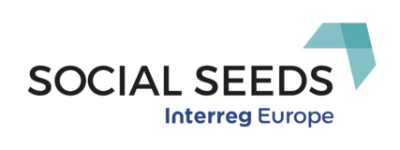
1 April 2016 – 31st March 2021
Country: Belgium
Overall project budget: 1,636,675 €
Budget carried out by EURADA: 273,900 €
Budget origin: Interreg Europe programme
Description of the project: Exploiting Potentials of Social Enterprises through Standardized European Evaluation and Development System (Social Seeds)
The project gathered regions with the goal to enhancing the social enterprise eco-systems in European regions through government-run measurement and labelling scheme. Social Seeds equipped policymakers with an evidence-based policy diagnostic tool that increases the effectiveness of local and regional policies for stimulation of growth and employment in social enterprises including their eco-systems in European cities and regions. To this end, a regional and local government-run measurement and labelling scheme addressed to social enterprises was established. It will help policy-makers’ concrete actions towards creating the right conditions to allow the sector to thrive. Although, similar issues related to strengthening the position of SEs within the private and public sphere have already been part of EU development agendas for many years, the focus on ranking and benchmarking regional and local SEs according to policy metrics is new.
EURADA carried out following tasks:
Provision of research and advice to Social Seeds project partners about best-practices e.g. start-up, scale-up, finance, internationalisation, up-skilling, and innovation related to social innovation and social enterprises EU-wide;
Support of Social Seeds project partners to review and further develop their action plans related to strengthening regional social enterprise eco-systems;
Organisation of the Social Seeds final conference titled AGORADA 2019 (27/28.03.2019) with the participation of 100+ representatives of the European institutions, RDAs, IAs, social enterprises and academia;
Communication about the project progress and dissemination about the project results at European level.
Consortium members: IFKA Public Benefit NonProfit Ltd. For the Development of the Industry; Steinbeis Innovation GmbH; Rzeszow Regional Development Agency Regional Development Agency of South Bohemia RERA Inc; BSC, Business Support centre Ltd., Kranj.
Project website: https://www.interregeurope.eu/socialseeds/
Twitter: https://twitter.com/Social__Seeds
Facebook: https://www.facebook.com/projectSocialSEEDS/
Contact person at EURADA: tessa.anne(at)eurada.org

January 2021 – September 2023
Country: Belgium
Overall project budget: €3,499,060.50
Budget carried out by EURADA: €123,050 (3.52%)
Budget origin: European Commission | Tender
Description of the project:
TAMSALL aims to contribute to the development of qualitative local public services in Libya. This will imply the empowerment of liaison with donors, international organisations, European regional and local authorities, as well as relevant stakeholders, and the reinforcement of administrative tools for planning and implementing services. Within this framework, the two specific objectives of this action are: Specific Objective 1 (S.O1) – National and international cooperation of Libyan municipalities on environment, youth, social and health as well as communication services is improved; Specific Objective 2 – (S.O2) New/improved methodologies for planning and implementing local services are adopted by Libyan municipalities.
Type of services provided:
- Communication and dissemination of the project at EU institutional level.
- Interview of Nicosia municipalities’ representatives in Brussels during the Preparation Phase.
- Organisation of Traineeship Visits of Activity 7 under Component 2, facilitating the contacts with potential European hosting institutions.
- Active collaboration for the creation of contents for the TAMSALL project social media pages.
Consortium members:
Attractiveness Research Territory (ART-ER), Agenzia per lo Sviluppo e la Cooperazione Economica Internazionale (INFORMEST), Association Europeenne des Agences de Developpement (EURADA).
Twitter: https://twitter.com/TamsallProject
LinkedIn: https://www.linkedin.com
Newsletter: https://mailchi.mp/ce42ef978bb9/tamsallnewsletter
EURADA contact person: irae.almora(at)eurada.org

1 February 2019 – 28th February 2022
Country: Belgium
Overall project budget: 1,999,833 €
Budget carried out by EURADA: 148,375 €
Budget origin: Horizon 2020 programme
Description of the project: Territorial Resposible Research and Innovation Through the involvement of local R&I Actors (TeRRItoria)
TeRRItoria was a project which placed regions and local authorities as a factor to be considered in the overall concept of Responsible Research and Innovation. TeRRItoria project operated in a context of transition in European society, which is often critical. For territorial governance this shift and transition can be a challenge to the usual strategies and measures fostering economic development and social cohesion. In this context of contestation and transition, the concept of RRI and by extension the search for Territorial RRI may be a way of enabling local and regional governance to deal with such an era of change. By linking RRI to regions and territorial governance, the project assumed that the competitiveness of European territories and regions will be fostered. Adopting RRI into regional governance is not well documented and TeRRItoria marked one of the first steps to exploring this unmapped territory.
EURADA carried out following tasks:
Coordination of the communication activities (ensuring that the activities of the project and project partners are communicated and disseminated to identified stakeholders, policymakers and the general public);
Managing the dissemination of the outcomes and exploitation of the results
Organisation of 12 #ResponsibleRegions Dialogues to gather in webinars regional practitioners and academics
Coordination of the external experts and third parties involved with the project in the research and government sector
Organised the final conference of the project.
Consortium members: ESF; K&I; Aarhus University; Central Macedonia; NTNU; ARC-Fund; ASTER; SEERC; DBT: Municipality of Gabrovo; Community of Trodelag; ADR Nord-Est.
Project website: http://territoriaproject.eu/
Twitter: https://twitter.com/Territorial_RRI
LinkedIn: https://www.linkedin.com/company/28807603/
YouTube: https://www.youtube.com/channel/UCM8QW7ohNJVPLCnwufDzWBA
Contact person at EURADA: giacomo.frisanco(at)eurada.org

September 2020 – August 2023
Country: Belgium
Overall project budget: €1,980,437
Budget carried out by EURADA: €185,625
Budget origin: European Commission | DG RTD
Description of the project:
The project aims to implement RRI in the territorial level. For this end, various European regions are participating in the project. The regions are from different parts of Europe giving an opportunity to make visible and compare different politico-economic contexts and their effects on the implementation of RRI. The project will: a) Map and analyze the territorial systems to understand what is the current role of RRI, and what are the drivers and barriers for a RRI related transition; b) Co-create with the stakeholders mechanisms and supporting elements for the increasing implementation of RRI; c) Support the organization of the pilots in the implementation of RRI; d) Organize opportunities for territorial actors to learn and have peer support from other regions internationally; and e) Support dialogue between different levels of governance of research and innovation on RRI. The project will utilize innovation systems related theories together with theories of systemic and organizational change.
Type of services provided:
Provision of research and advice on support schemes for migrant entrepreneurs and enterprises benefitting migrants collected from RDAs and IAs and analysed. Communication about the project progress and dissemination about the project results at European level.
• Exploitation of the results of the project;
• Communication and dissemination: EURADA will spread outcomes and success of the project with the next tools:
- Establishment of a Communication and Dissemination Strategy and visual identity;
- Creation of the website, brochures, newsletter, etc;
- Promotion of the project on print journals, magazines, web, radio and TV.
• The organisation of a final conference in Brussels (M36) for around 150-200 people to summarise the project, present the main results to regional practitioners, and link with EC services, other EU institutions, major stakeholders and researchers.
Consortium members:
Teknologian tutkimuskeskus VTT Oy; Yaghma; Fraunhofer Gesellschaft Zur Foerderung Der Angewandten Forschung E.V.; Fundacion Tecnalia Research & Innovation; Association Europeenne Des Agences De Developpement (EURADA); Sociedad Para El Desarrollo Regional De Cantabria Sa; Pirkanmaan Liitto; TechnologieRegion Karlsruhe GmbH; Dél-alföldi Regionális Innovációs Ügynökség Közhasznú Egyesület
Webpage: https://tetrris.eu//
Twitter: https://twitter.com/TetRRIS_project
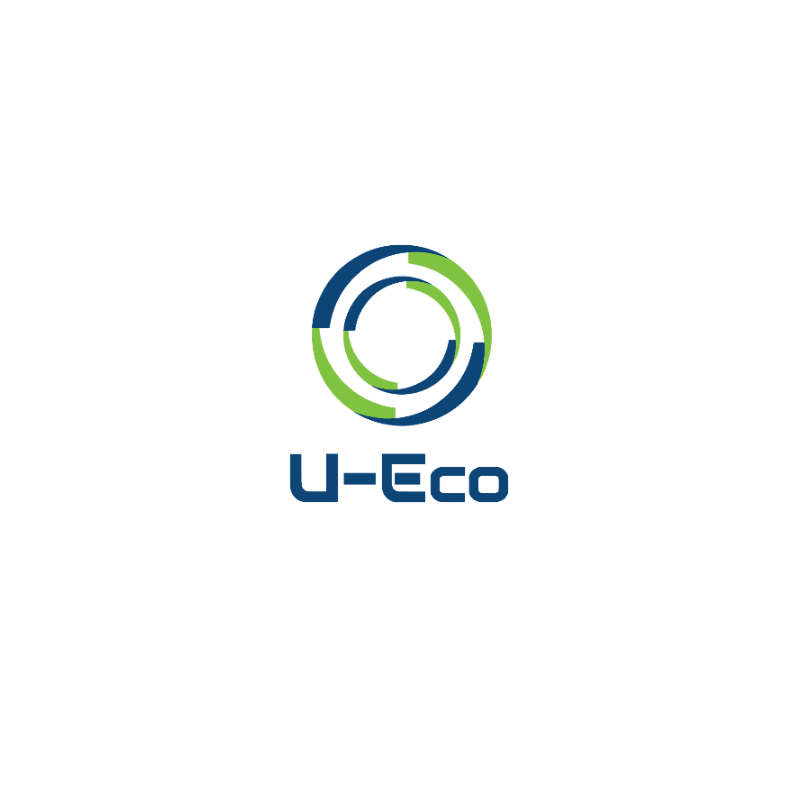
1st October 2019 – 31st September 2021
Country: Belgium
Overall project budget: 280,456 €
Budget carried out by EURADA: 56,956 €
Budget origin: Erasmus+ programme
Description of the project: Upskilling for more creative circular economy (U-Eco)
U-Eco focused on the key role of Circular Economy (CE) as a way of decoupling growth from resource constraints, i.e., of generating no or minimal waste so that any waste generated can be put back into use for other purposes or safely returned to the environment. To achieve this, the project developed a holistic set of training materials to form the basis of training courses to be run in order to stimulate CE entrepreneurship. These materials include:
- The content to be taught on such a course, offering beginners a look into the principles and practices of CE, the basics of entrepreneurship, how to find a career path within CE, and much more
- A set of 13 case studies – real-life examples of CE companies and intitatives – which may serve as inspiration for those following such a course on CE entrepreneurship
- A trainers’ manual, offering in-depth guidance on how to set up and run classes, teaching methodology, ideas for activities, and advice on running mentorship programmes, among other topics.
The project concluded in September 2021 and its materials are already being put to practical use for the teaching of courses on CE entrepreneurship in the framework of the Erasmus+ project One Block for Educational Credentials (OBEC) on which EURADA and the lead partner of U-Eco, SwIdeas, also work.
EURADA carried out following tasks:
Provision of advice to project partners about the suitability of the solutions provided based on its experience of its members in the promotion of start-ups, Circular Economy and the implementation of public support policies for industrial competitiveness;
Joint development with the consortium of the training materials developed by the project;
Consultation on and peer reviewing of the materials developed by the project partner;
Coordination of public EU-wide multiplier events to facilitate the exploitation of the project results with regional and local authorities;
Communication about the project progress and dissemination of the project results at local, regional and European level.
Consortium members: SwIdeas; Training for Develop and Integration (DEFOIN); BIOAZUL; Association for the Regional Initiatives Development (ARID); Centrul Pentru Promovarea Invatarii Permanente.
U-Eco's 3 Intellectual Outputs:
- Intellectual Output 1 – Circular Economy for promoting entrepreneurship and self-employment: Major expected outputs: design and implementation of a training strategy based on the analysis of the current state of development and application of the CE in the partners’ countries, needed to detect which our baseline is and to trace the way forward,
- Report on Market research on entrepreneurship opportunities
- Catalogue on job profiles needed in a CE context
- Training modules
- Intellectual Output 2 – Learning from real life. Major expected outputs: selection of successful case studies and good practices divided into 5 blocks connected to the areas previously identified with the aim of inspiring the potential entrepreneurs,
- Intellectual Output 3 – Upgrading facilitator for Circular Economy. Major expected outputs: the creation of a manual for trainers (in e-format). Future trainers will need to work independently in an effective way, so it is intended to produce a manual too, on the one hand, be able to use all tools and products developed within the project and, on the other hand, be able to apply de methodology followed within U-eco and further develop their own tools.
Project publications
- First newsletter – January 2020
- First press release – March 2020
- Second newsletter – August 2020
- Second press release – September 2020
- Third press release – November 2020
- Third newsletter – December 2020
- Fourth press release – April 2021
- Fourth newsletter – May 2021
- Fifth press release - August 2021
- Fifth newsletter - June 2021
- Sixth press release - September 2021
- Sixth newsletter - September 2021
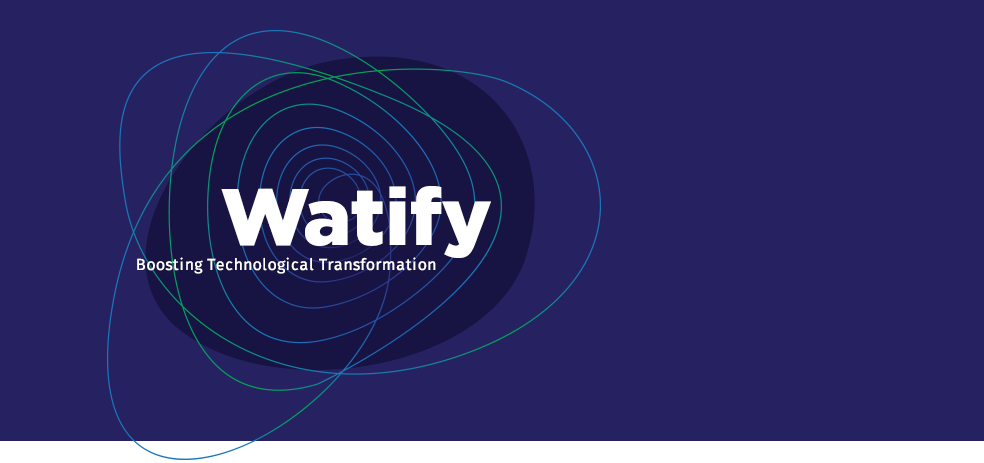
September 2016 – July 2018
Country: Belgium
Overall project budget: 2,199,275 €
Budget carried out by EURADA: 151,340 €
Budget origin: European Commission | EASME
Description of the project: Awareness Raising Campaign of the European Commission for industrial modernisation. WATIFY
As awareness-raising campaign WATIFY stimulated the modernisation of European industry. It was focused on technological transformation of traditional SMEs, promotion of regional digitisation and uptake of advanced technologies. WATIFY boosted the rate of European industrial modernisation through increased productivity and efficiency, resulting in improved competitiveness and job creation. The campaign successfully implemented 235 awareness and 13 flagships in 19 different EU countries, almost half of them in lagging behind regions. In addition, WATIFY organised 40 Matchmaking events for B2B meetings to establish technology cooperation agreements. The campaign had a strong online presence. Twitter chats and webinars with experts were organised explaining specific practical aspects for technology transformation in SMEs. For Facebook the number of followers reached 94.817. The Twitter account reached 11.830 followers and the LinkedIn account reached 1.503 connections.
EURADA carried out following tasks:
Organisation of 20+ WATIFY events (e.g. at the EU Industry Days) and webinars presenting this initiative and related advantages for technology transformation of the SMEs mobilising networks of RDAs and IAs Europe-wide;
Organisation of one B2B for social enterprises and two conferences on Industry 4.0 and technology transformation in the framework of WATIFY;
Support for the establishment of a WATIFY network of ambassadors using the expertise of its network’s staff. These experts were appointed as speaker in the WATIFY webinars.
Consortium members: GOPA GmbH; CARSA; Technopolis; ATOS; Brainport Development.

September 2019 – September 2022
Country: Belgium
Overall project budget: €2,999,973
Budget carried out by EURADA: €178,750
Budget origin: European Commission | DG RTD
Description of the project:
XPRESS: Support for Public Procurements to facilitate the collaboration between SMEs and public sector for the development and adoption in renewables in regions.
The XPRESS will facilitate the introduction of innovative RES technologies (Renewable Energy Source) and increase the share of renewable energy in the final energy consumption through the objectives: 1. creating a web platform that supports interacting between public procurers, innovative SMEs and end users of green innovations (WP2); 2. mapping of the low carbon energy needs of cities and municipalities with the RES technologies developed by innovative SMEs (WP1 and WP2); 3. improving the application of GPPs to innovative RES technologies (WP3); 4. increasing the awareness of innovative SMEs about RES technologies via GPPs (WP3); 5. developing a new methodology to evaluate RES technologies developed by innovative SMEs across their life cycle in order to estimate the CO2 emissions (WP4). XPRESS will focus initially on selected cities and municipalities within UK, IT, NO, DE, SE, ES, DK SL, PT and BE with the goal of extending the analysis and the involvement to wider regions within those countries.
Type of services provided:
- Data collection and management about green public procurement (GPP) and RES technologies at EU level;
- Communication about the project progress and dissemination about the project results at local, regional and European level;
- Coordination of policy co-creation workshops and case studies to gather representatives from cities and enterprises across Europe and co-create policy recommendations with a focus on the thematic areas mentioned in the EU Urban Agenda as well as in the United Nations Sustainable Development Goals (UN SDGs).
Consortium members:
Officinae Verdi Group SPA; eAmbiente SRL; University of York; Element Energy Limited; Berlin DIW; Norwegian University of Science and Technology; Agenzia per la promozione della ricerca europea; Linnaeus University; GLOBAZ, S.A.; Rete Internazionale Per Le Piccole e Medie imprese; Fundancion Circe; European Green Cities APS; Alleanza per il Clima Italia; Climate Alliance Europe; Slovak Craft Industry Federation
Webpage: https://www.xpress-h2020.eu/
Twitter: https://twitter.com/xpressh2020
Eurada contact person: giacomo.frisanco(at)eurada.org